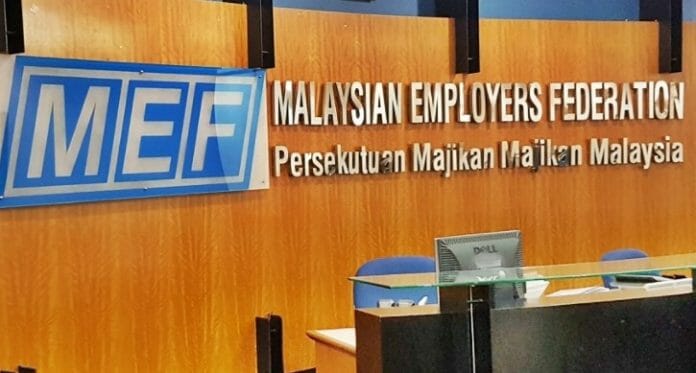The Malaysian Employers Federation (MEF) hopes that the Progressive Wage Model (PWM) will be fair to employers and be productivity-focused.
MEF president Datuk Dr Syed Hussain Syed Husman told Business Today while MEF is supportive of PWM as it agrees that wages cannot keep up with cost of living, focusing only on wages without productivity will spell more trouble down the line.
“MEF supports the initiatives to introduce PWM to narrow the gap of wages between the lowest category and the median wages. However, it is very critical that PWM should be utilised as a means to improve productivity and competitiveness of the nation.
“(This) will benefit the rakyat, and employees will be able to enjoy higher wages and better career pathways,” he said.
Syed Hussain said productivity must first be increased then only wages, as to not hurt the employers.
A study on productivity and wages growth from 2011 to 2019 indicated that wages grew at an average of 1.7% yearly, higher than productivity, according to Syed Hussain.
“Such situation eroded competitiveness of the employers and the nation,” he said.
He added PWM should be linked to increases in productivity and performance, be carefully planned and implemented in stages to meet this objective.
“Employees need to undergo upskilling certified training before being paid with higher wages.”
Before its implementation, Syed Hussain hopes that the government lay down adequate foundation and consulted stakeholders.
He suggested that the government formed tripartite committees made up of unions, employers and the government to formulate and implement PWM for selected sectors as it will shape the future of the company.
“Stakeholders should be consulted and tripartite committees made up of unions, employers and the government be formed to formulate and implement PWM for certain selected sectors as it will shape the future of the economy.
“The sectoral tripartite committee must discuss how to map clear career pathways of employees and for wages to be linked to training, upskilling, reskilling and improvement in productivity and standards.
“Upskilling and reskilling are critical as we are now in the artificial intelligence (AI) and the fourth industrial revolution (IR 4.0). The percentage of certified skilled employees is expected to increase the targeted level of 35% by 2025 from the 29% currently,” he said.
MEF also hopes that incentives would be given to employers that voluntarily participate for PWM and allocated subsidies to defray some of the cost associated with payment of higher yearly increment.
Among his suggestions are certain percentage of subsidy on the annual increase for a certain determined period, and subsidising additional wages for micro, small, medium enterprises (MSMEs).
On the other hand, government-linked companies (GLCs) and multinational companies (MNCs) and foreign workers should not be eligible for the subsidy, he added.
“Businesses especially MSMEs are currently facing challenging business environment due to the fast-changing customer preferences, globalization, stiff competition, limited resources, and human resources issues especially to attract and retain talent,” he said.
However, Syed Hussain said the real issue is the increase in the cost of living, and wages should not be the only element to address the former.
“Increasing wages without real efforts to curb increasing cost of living will just keeps on chasing cost of living to higher levels. Payment of higher wages will result in employers passing on the increase of cost to consumers, in most cases.”
Last August, Prime Minister Datuk Seri Anwar Ibrahim announced that the progressive wage policy will be voluntary, incentive-based and productivity-linked in a statement after a National Economic Action Council (NEAC) meeting.
Economy Minister Rafizi Ramli tabled White Paper on Progressive Wages in Parliament on Nov 30 and said PWM is expected to be implemented around April to May this year.
Rafizi had said the progressive wages programme, Rafizi said, would target employees earning between RM1,500 and below RM5,000 a month, and cover 66% or four million of the workforce.









